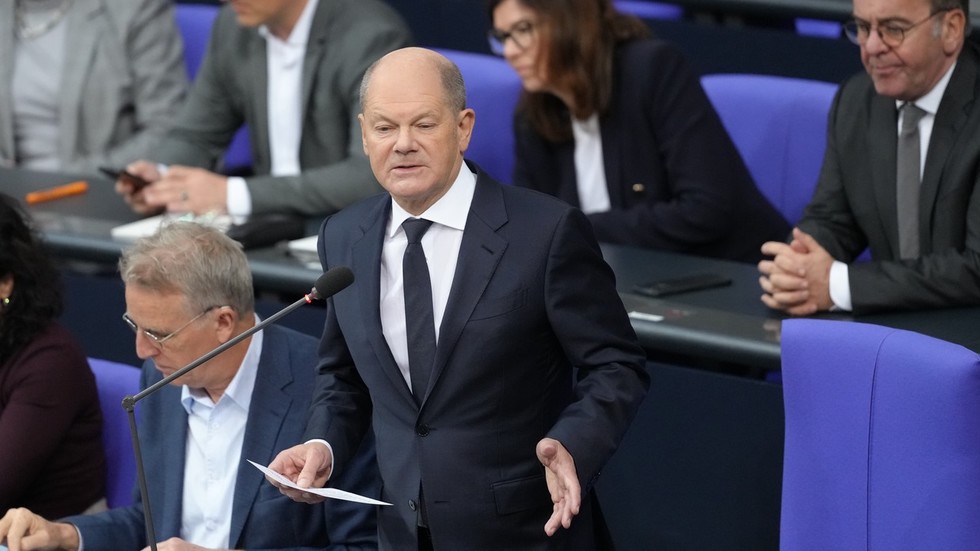In a recent parliamentary session, German Chancellor Olaf Scholz defended his phone conversation with Russian President Vladimir Putin, which occurred in mid-November after a two-year hiatus between the two leaders. Scholz argued that not communicating with Putin amid the ongoing Ukraine conflict would be absurd and counterproductive for Germany and the European Union. He emphasized that if European nations did not directly engage with Russia, they risked becoming irrelevant on the international stage. During the call, Scholz urged Putin to withdraw Russian troops from Ukrainian territories and reaffirmed Germany’s commitment to supporting Ukraine in its ongoing struggle against Russian aggression.
The dialogue revealed differing perspectives on the conflict. Scholz reiterated his position of unwavering support for Ukraine, while Putin suggested that NATO’s actions had historically fostered tensions, casting blame on the alliance’s perceived aggressive policies. He distinguished his openness to negotiations, signaling a willingness to discuss potential resolutions but insisted that new territorial realities needed acknowledgment. This discrepancy highlights the complexity of achieving a peaceful resolution as both sides remain steadfast in their viewpoints regarding the conflict’s origins and resolution.
Criticism of the phone call emerged swiftly, particularly from the opposition party in Germany. An MP from the Christian Democratic Union (CDU) expressed doubts about the effectiveness of such communications, questioning whether they contributed positively to the situation. In response, Scholz underscored the necessity of dialogue, refuting any notion that reaching out to Putin would indicate weakness. He asserted that Germany and Europe should take an active role in international conversations, rather than passively awaiting engagement from other global leaders.
Scholz’s stance aligns with a pragmatic view of diplomacy, suggesting that open channels of communication are essential even when disagreements are present. He maintained that diplomatic efforts do not necessarily undermine Western unity but can serve to clarify positions and prevent misunderstandings. This was indicative of a broader strategy among Western leaders, with Scholz expressing continued intent to engage with Putin in the future.
Within Ukraine, President Volodymyr Zelensky criticized the call as detrimental to isolating the Kremlin. He argued that such interactions could embolden Russia, undermining international pressure against Moscow. This reflects broader concerns within Ukraine about Western nations engaging with Russia while the conflict persists, leading to fears that diplomatic efforts could inadvertently provide the Kremlin with a semblance of legitimacy or respite from isolation.
The reactions to the conversation within the West have been varied, showcasing a spectrum of perspectives on the issue. Polish Prime Minister Donald Tusk denounced the effectiveness of phone calls in deterring Putin, while Canadian Prime Minister Justin Trudeau acknowledged the need for engagement despite fundamental disagreements. These contrasting opinions signal a complex landscape of international relations regarding the Ukraine conflict, underscoring the delicate balance that Western leaders must navigate between supporting Ukraine and managing diplomatic ties with Russia.

